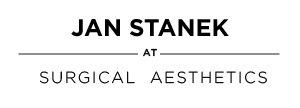10 tips for choosing the right cosmetic surgeon
/When it comes to choosing the right clinic, it’s not as cut-and-dried as selecting the nearest one to you. There are a plethora of options available for newcomers to cosmetic procedures, with a bewildering array of specialists looking for your business. And ‘specialist’ is the key word here: you want the best practitioner for the procedure you require. So, where to start?
1. Seek personal recommendations
Advertisements and websites are a good starting point, but nothing beats the advice of people who have already been through the process. If you know someone who has, don’t be shy to ask them about what they went through, who they went with, and how the procedure went. At the very least, you’ll find out who to avoid.
2. Check the list
The next step when you’ve found a practitioner you like the sound of is to ensure they’re legitimate and start to check on their record. The best place to start is the website of the General Medical Council, an independent organisation which manages and maintains the UK medical register – which you can use to check out any registered practitioner. You can find out if they’re registered or not, which year they qualified, and their current status. It’s the best place to start to scope out a practitioner and discover if they’re who they say they are.
3. Are they specialists?
By this time, you should know exactly what you want, and are narrowing down the list of potential practitioners. Whilst most aesthetic surgery practices aim to provide as many services as possible, it’s a natural fact of life that a lot of them will be more proficient at some procedures than others – so it’ll be your job to winkle out the best possible practitioner for your particular needs. Scour the internet for reviews. Check the website for information. And get ready to move on to the most important stage of your investigation…
4. Make the most of your consultation period
This is a very big step towards the procedure, and for good reason. The practitioner’s role is to convince you that they are capable of performing the operation to the highest possible standards: your role is to be completely honest about what you want, and to demonstrate that you are totally aware of what you’re undertaking. You could write an entire book on how to conduct the perfect consultation, but the key points are…
5. Don’t be backwards in coming forwards
This is the time when any questions or doubts need to be brought out in the open and addressed. If there’s anything you don’t understand about what you’re planning to undertake, ask for a clearer explanation. The last thing any professional practitioner wants is for potential clients to leave the consultation with a grain of doubt, because that leads to a cancelled procedure.
6. Be completely open
We mean two things by this: firstly, you should be prepared for a breast examination, so make sure you wear loose-fitting clothing. Secondly, you should be in a position to give the practitioner a full run-down of your medical history.
7. Check their Before & After pics
All professional clinics will keep a database of images of previous clients demonstrating what they looked like before a procedure and afterwards – it’s one of the best markers of a practitioner’s skills around. If you’ve not been shown them already, now is the time to ask for a browse.
8. Talk to their clients
The final thing you need to do is ask for contact details for previous clients, which all professional clinics will be happy to furnish you with. After all, the best advertisement is a satisfied customer.
9. Do your research
By now, you’ve booked yourself in with a clinic and are completely ready to go. So now is the time to double-check every eventuality. If your procedure involves an overnight stay, now is the time to check out the facilities. It’s also a good time to familiarise yourself with any do’s and don’ts during your recovery period.
10. Make sure you’re covered
Finally, it’s extremely prudent to be aware of what your rights are and what you can do if you are not happy with the results of your procedure. The vast majority of reputable clinics will have a procedure in place for genuine complaints, so make sure you’re fully aware of it.








